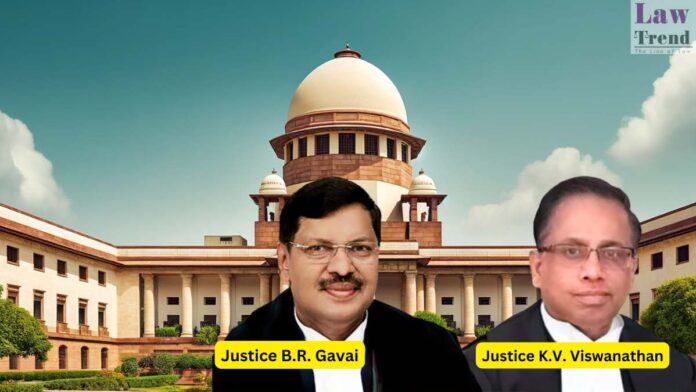In a critical ruling, the Supreme Court, led by Justice B.R. Gavai and Justice K.V. Viswanathan ordered the reinstatement of candidates who had been wrongfully terminated from their positions as Technician Grade-II (Electrical) at the Uttar Pradesh Power Corporation Limited (UPPCL). The case, Mukul Kumar Tyagi v. State of Uttar Pradesh & Ors. (Civil Appeal

To Read More Please Subscribe to VIP Membership for Unlimited Access to All the Articles, Download Available Copies of Judgments/Order, Acess to Central/State Bare Acts, Advertisement Free Content, Access to More than 4000 Legal Drafts( Readymade Editable Formats of Suits, Petitions, Writs, Legal Notices, Divorce Petitions, 138 Notices, Bail Applications etc.) in Hindi and English.
Click to Subscribe
If you are already a VIP Member, Click to Login Now
READ ALSO India Ranks 161st in Press Freedom, SG Replied- It Depends on Who Is Giving These Rankings




